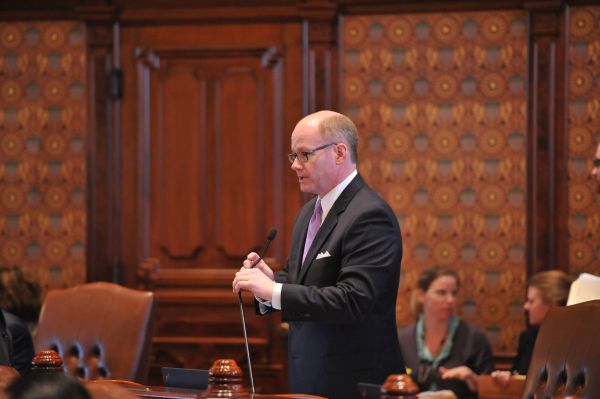 Three years ago, the U.S. Supreme Court ruled in Miller v. Alabama that sentencing a minor to a mandatory life sentence with no possibility of parole was unconstitutional. Since then, the General Assembly has been working to update Illinois’ juvenile sentencing laws.
Three years ago, the U.S. Supreme Court ruled in Miller v. Alabama that sentencing a minor to a mandatory life sentence with no possibility of parole was unconstitutional. Since then, the General Assembly has been working to update Illinois’ juvenile sentencing laws.
Today, a plan that Senator Don Harmon (D-Oak Park) negotiated among state’s attorneys, criminal justice reform groups and other stakeholders became law. It essentially gives judges more discretion when they hand down sentences for minors accused of serious crimes like murder and rape.
“We need to give judges the authority to tailor juvenile sentences to fit the crime,” Harmon said. “There need to be serious consequences when young people commit serious crimes, but in many cases, we also want to give them a second chance.”
The proposed law allows judges to waive aggravating factors relating to possession and use of a gun. It doesn’t preclude a young person being sentenced to life without parole, but does ensure that life without parole is never the mandatory sentence.
It also outlines a series of factors the courts should take into account when handing down sentences to minors convicted of serious crimes. These include:
- The minor’s age and maturity
- The minor’s home environment, including any past abuse
- The potential the minor could be rehabilitated, including if he or she shows remorse
- The circumstances of the offense
- The minor’s prior criminal history
- If the minor has a developmental disability
“This law is the right thing to do,” Harmon said. “It brings Illinois in line with the U.S. Constitution and recognizes that children who commit crimes generally should not be treated the same way as adults.”
The legislation is House Bill 2471. It takes effect January 1, 2016.




